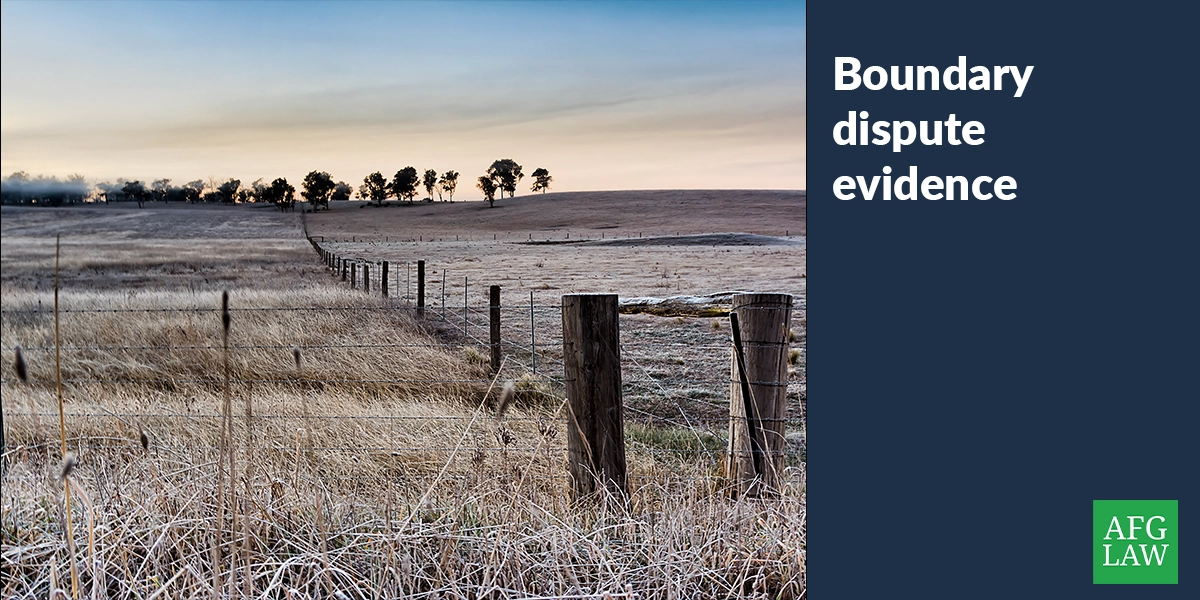Boundary disputes can be hard to resolve, especially to the satisfaction of both parties.
However, having appropriate and relevant evidence to show can help the court to make a decision on where the boundary lies and reduce the overall costs and time spent on the dispute.
What classes as a boundary dispute?
A boundary dispute is any type of dispute or disagreement that occurs between neighbours or landowners about their property.
There are a number of issue that class as a boundary dispute, including:
Unclear property descriptions
Poorly assembled fencing
Misunderstandings between neighbours
Material claims, like water rights and land usage
What evidence do you need to prove a boundary?
When you’re trying to prove a boundary, there are a few pieces of evidence that can help with this.
Evidence can include:
Certified Copies of the Deeds to the Property - This is a photocopy of the original document that has been confirmed to be a true copy without any changes or amendments made. The copy must be certified by a professional.
Surveyor Reports - This is a document that provides information about a property’s condition and any issues that may be present.
Ordnance Survey - This is the national mapping agency of Great Britain, responsible for creating and updating accurate and up-to-date geographic data.
Photographs, such as old family photos and aerial shots - This can help to distinguish how long a boundary has been in place or how it might have changed.
Written and Signed Statements - These can be signed in front of a solicitor, magistrate or commissioner of oaths.
Witness Evidence - Written and signed statements can be taken as evidence from witnesses like other neighbours and past owners too.
What evidence will the courts look at when dealing with a boundary dispute?
The courts will usually review any evidence that is available to them, including the examples previously outlined.
Some of the most common pieces of evidence that will be used in the court include title deeds, ordnance surveys and photographs of any physical features and other extrinsic evidence.
If a boundary dispute has been running for a long period of time, the court may require witness evidence from long standing neighbours or the previous property owners.
How to solve a boundary dispute with AFG Law
As boundary disputes can be complex to deal with, we always advise you to seek the help of a professional boundary dispute lawyer to help you at an early stage.
At AFG Law, we are experts in dealing with boundary dispute cases and can help you to identify the main issues, gather relevant evidence and recommend experts where necessary.
We will always help to guide you through the courts process, helping to ensure your case is as well prepared as possible.
If you are currently going through a boundary dispute with a neighbour, or you would like to raise a dispute about your property boundaries, get in touch with our team today to see how we can help you.
